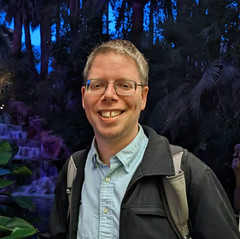
Learning is traditionally studied in biological or computational systems. The power of learning frameworks in solving hard inverse problems provides an appealing case for the development of physical learning in which physical systems adopt desirable properties on their own without computational design. It was recently realized that large classes of physical systems can physically learn through local learning rules, autonomously adapting their parameters in response to observed examples of use. Physical learning machines provide multiple practical advantages over computer designed ones, in particular by not requiring an accurate model of the system, and their ability to autonomously adapt to changing needs over time. As theoretical constructs, physical learning machines afford a novel perspective on how physical constraints modify abstract learning theory.
In this seminar we will discuss what distinguishes physical learning from computational learning, see how physical learning rules can be derived for diverse types of physical systems, and demonstrate some consequences of physical learning on the learning materials themselves.
Hosts: Michael Abbott, Isabella Graf, and Mason Rouches